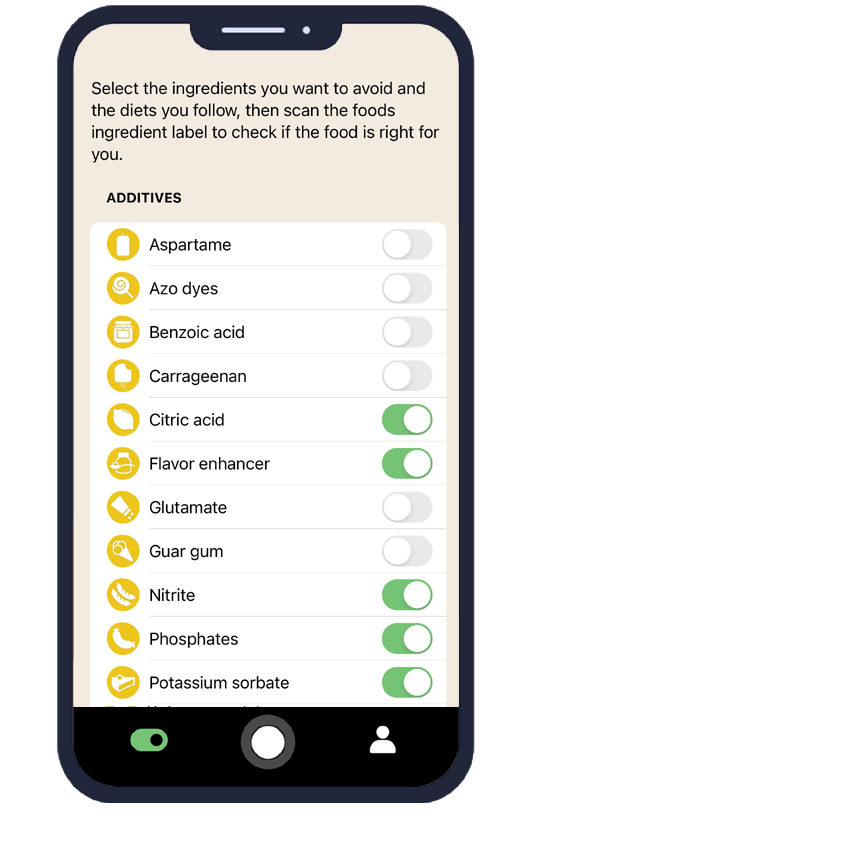Everything You Need to Know About Beef in Food Products and How AI Eat This Can Help
Beef is a common ingredient found in countless food products, from obvious sources like burgers and steaks to unexpected places in processed foods and seasonings. For individuals with dietary restrictions, religious preferences, or health concerns, identifying Beef in ingredient lists can be challenging and time-consuming. The AI Eat This mobile app revolutionizes this process by instantly scanning and identifying Beef in any food product, helping consumers make informed choices about their diet and health.
What Is Beef and Where Is It Used in Food Products?
Beef refers to meat derived from cattle and is widely used across the food industry in various forms. Beyond traditional cuts of meat, Beef appears in numerous processed foods as flavoring agents, protein sources, and texture enhancers. Understanding where Beef commonly appears helps consumers make better dietary decisions.
The food industry utilizes Beef in multiple forms, including beef extract, beef fat, beef gelatin, and beef protein isolates. These derivatives often serve as flavor enhancers in soups, sauces, and seasonings. Many consumers are surprised to discover Beef-derived ingredients in products they wouldn't typically associate with meat.
Common Foods Containing Beef
- Processed meats and deli products
- Soup bases and bouillon cubes
- Flavored snacks and seasonings
- Certain candies and gummies (beef gelatin)
- Restaurant sauces and gravies
- Some protein bars and supplements
Is Beef Safe? What Does the Research Say?
Beef safety has been extensively studied by major health authorities worldwide. The FDA, EFSA, and WHO have established comprehensive guidelines for Beef production, processing, and consumption. These organizations continuously monitor Beef safety through rigorous testing and research protocols.
From a regulatory standpoint, properly processed and handled Beef is considered safe for consumption by the general population. However, safety concerns may arise from improper handling, contamination, or consumption by individuals with specific health conditions or dietary restrictions.
Regulatory Approvals and Guidelines
Health authorities have established strict standards for Beef production and processing. The USDA implements comprehensive inspection programs, while international bodies like the WHO provide global guidance on meat safety. These regulations ensure that commercially available Beef products meet stringent safety requirements.
Quality control measures include temperature monitoring, pathogen testing, and facility inspections. These protocols significantly reduce the risk of foodborne illnesses associated with Beef consumption when products are handled and prepared correctly.
Risks for Specific Groups
While Beef is generally safe, certain individuals may need to avoid it entirely. People with alpha-gal syndrome, a tick-borne allergy, can experience severe reactions to mammalian meat including Beef. Additionally, those following vegetarian, vegan, or certain religious dietary practices must completely avoid Beef products.
Individuals with compromised immune systems, pregnant women, and elderly consumers may need to exercise extra caution with Beef consumption. Consulting healthcare providers about Beef safety is recommended for these vulnerable populations.
How AI Eat This Helps You Avoid Beef in Your Diet
The AI Eat This app transforms how consumers identify Beef in food products through advanced ingredient scanning technology. Simply point your smartphone camera at any ingredient list, and the app instantly identifies Beef and its derivatives, regardless of the language or technical terminology used.
This innovative technology recognizes various forms of Beef, including scientific names, E-numbers, and alternative terminology that manufacturers commonly use. The app's database continuously updates to include new Beef-derived ingredients and food additives, ensuring comprehensive coverage.
Users can create personalized dietary profiles within the app, setting specific restrictions for Beef avoidance. The app then provides instant alerts when scanning products containing any form of Beef, making grocery shopping safer and more efficient for those with dietary restrictions.
The multilingual capability of AI Eat This makes it invaluable for travelers or those purchasing imported foods. Whether ingredient lists are in English, Spanish, French, or dozens of other languages, the app accurately identifies Beef-containing products.
Who Should Consider Avoiding Beef?
Several groups of people may need to avoid Beef for various health, ethical, or religious reasons. Understanding these categories helps identify when Beef avoidance becomes necessary for optimal health and personal well-being.
Individuals with alpha-gal syndrome must strictly avoid all mammalian meat, including Beef, due to potentially life-threatening allergic reactions. This condition, caused by tick bites, has become increasingly recognized by medical professionals and requires complete dietary modification.
Religious dietary restrictions also necessitate Beef avoidance for many people. Hindus traditionally avoid Beef consumption, while those following halal or kosher dietary laws may have specific requirements regarding Beef preparation and sourcing.
People choosing plant-based diets for environmental, ethical, or health reasons actively avoid all animal products, including Beef. These dietary restrictions require careful label reading to avoid hidden Beef-derived ingredients in processed foods.
Tips for Maintaining a Beef-Free Diet
Successfully avoiding Beef requires strategic planning and consistent label reading. Start by familiarizing yourself with common Beef derivatives and alternative names used in ingredient lists. This knowledge forms the foundation for effective Beef avoidance.
Focus on whole, unprocessed foods when possible, as these naturally eliminate concerns about hidden Beef ingredients. Fresh fruits, vegetables, grains, and plant-based proteins provide excellent nutrition without Beef-related risks.
When dining out, communicate clearly with restaurant staff about your Beef restrictions. Many establishments can accommodate dietary restrictions when given adequate notice and specific information about your needs.
Utilize technology like the AI Eat This app to streamline ingredient checking and reduce the time spent deciphering complex food labels. This approach makes maintaining dietary restrictions more manageable in daily life.
The Future of Ingredient Identification Technology
Artificial intelligence continues revolutionizing how consumers interact with food labels and ingredient lists. Apps like AI Eat This represent the cutting edge of food safety technology, making dietary restriction management more accessible than ever before.
As food production becomes increasingly complex, having reliable tools to identify specific ingredients becomes crucial for consumer safety and dietary compliance. The ability to instantly scan and identify Beef in any language removes barriers that previously made ingredient identification challenging.
Conclusion
Understanding Beef and its presence in food products is essential for anyone with dietary restrictions, allergies, or personal preferences regarding meat consumption. While Beef is generally safe for most people, certain individuals must avoid it completely for health or personal reasons.
The AI Eat This app provides an invaluable solution for identifying Beef in food products quickly and accurately. By leveraging advanced scanning technology and comprehensive ingredient databases, the app empowers consumers to make informed dietary choices with confidence.
Whether you're managing food allergies, following religious dietary laws, or maintaining a plant-based lifestyle, having reliable tools for ingredient identification is crucial. Download AI Eat This for free testing today and experience how technology can simplify your dietary restriction management while keeping you safe and informed about the foods you consume.

70 filters
With over 70 filters, you can easily avoid certain ingredients and follow your dietary preference.

Paleo

Pescetarian

Ultra-processed food

Vegan







































































